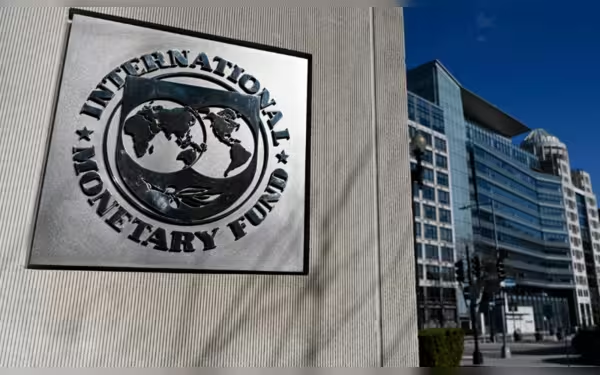Saturday, November 16, 2024 07:56 PM
IMF Urges Pakistan to Lower Trade Barriers for Economic Growth
- IMF calls for reduced trade barriers in Pakistan.
- Economic stability improves with new Extended Fund Facility.
- Fair taxation policies essential for inclusive growth.
 Image Credits: dawn
Image Credits: dawnIMF urges Pakistan to lower trade barriers and implement fair taxation for sustainable economic growth and stability.
The International Monetary Fund (IMF) has recently made a significant call for Pakistan to reconsider its economic strategies. On Thursday, during a discussion at the Sustainable Development Policy Institute (SDPI), IMF resident representative Esther Pérez Ruiz emphasized the need for Pakistan to lower trade barriers and reduce the government's role in economic decision-making. This shift is aimed at stimulating production and fostering a more competitive economic environment.
Esther Pérez Ruiz highlighted that Pakistan is currently on its 21st Fund programme, correcting earlier reports that suggested it was on its 25th. She pointed out that many one-time assistance packages were mistakenly counted as IMF programmes. The IMF's recent approval of a $7 billion Extended Fund Facility (EFF) programme marks a crucial step for Pakistan, which has been grappling with economic challenges, including the highest inflation rates in history.
During her presentation, Ms. Ruiz noted that confidence in policymaking has improved since the launch of the Stand-By Arrangement (SBA) programme in July of the previous year. She reported that inflation has decreased to its lowest level in three years, and foreign exchange reserves have more than doubled. Despite facing a challenging external environment and the devastating floods of 2022, Pakistan has managed to revive its economic and financial stability over the past fiscal year.
Ms. Ruiz stressed the importance of moving away from state intervention in economic decisions. She stated, "Protectionism and tax concessions for privileged groups must go," advocating for policies that promote competition and reduce trade barriers. This approach is essential for facilitating the growth of new and more productive activities within the economy.
Furthermore, the IMF representative called for reforms in the public sector to enhance its ability to generate resources necessary for improving public services, building human capital, and upgrading infrastructure sustainably. The new EFF programme expects the government to prioritize these areas to ensure its success.
Esther Pérez Ruiz also emphasized the need for a "just and fair" taxation policy, suggesting that the wealthy should be taxed more and untaxed sectors should be included in the tax net. She mentioned that enhancing the role of provinces in fiscal matters, in line with the 18th Amendment, could help balance resources and spending between federal and provincial governments.
The IMF's recommendations present a roadmap for Pakistan to achieve resilient and inclusive growth. By focusing on lowering trade barriers, promoting competition, and implementing fair taxation policies, Pakistan can work towards a more stable and prosperous economic future. As the country navigates these changes, it is crucial for policymakers to consider the long-term benefits of these reforms, ensuring that the economic growth translates into improved living standards for all citizens.













